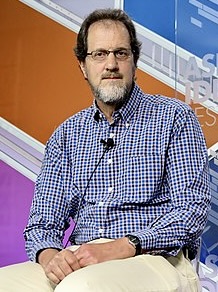Blood tests that detect cancer can create risks for those who use them, according to a story by Gina Kolata a while back in The New York Times.
The article indicates that "the tests screen for cancers that often go undetected, but they are expensive and some experts worry they could lead to unnecessary treatments without saving patients' lives."
Some companies, Kolata's piece says, aren't waiting for Food and Drug Administration approval before they sell the tests. One of the companies, Grail, is selling an annual version, and a second company, Exact Sciences, plans to do the same, using a loophole provision "known as laboratory developed tests."
The tests, the story contends, "are a new frontier in screening. Companies developing them say they can find dozens of cancers."
Supporters of the tests insist they can "slash cancer death rates by finding tumors when they are still small and curable. But a definitive study to determine whether the tests prevent cancer deaths would have to involve more than a million healthy adults randomly assigned to have an annual blood test for cancer or not. Results would take a decade or longer."
While standard screening tests "are commonly used to detect cancer of the breast, colon, cervix and prostate," Kolata's article notes, "73 percent of people who die of cancer had cancers that are not detected by standard test."
The story quotes Dr. Tomasz Beer a cancer researcher at Oregon Health & Science University who is directing a Grail-sponsored study of the test. "We're at a point now where the blood tests are in their early days," he says, but "I think there's promise for a real impact."
 |
| Dr. H. Gilbert Welch |
Among other risks the story attributes to some doctors are that "some will have a positive test, but doctors will be unable to locate the cancer. Others will be treated aggressively with surgery or chemotherapy for cancers that, if left alone, would not have grown and spread and may even have gone away."
Dr. Barnett Kramer, former director of the Division of Cancer Prevention at the National Cancer Institute and a member of the Lisa Schwartz Foundation for Truth in Medicine, according to Kolata's story, "fears that the tests will come into widespread use without ever showing they are beneficial" and hopes that "we are not halfway through a nightmare."
Once the tests are being used broadly, he adds, "it is difficult to unring the bell."
More information about clinical trials can be found in "Rollercoaster: How a man can survive his partner's breast cancer," a VitalityPress book that I, Woody Weingarten, aimed at caregivers.




